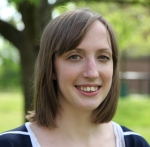Katherine Tonkiss
This weekend saw the announcement that the Government has completed its revisions to the ‘Life in the UK’ citizenship test, refocusing the questions on British culture, history and sport. According to the Government, there will be no more ‘mundane’ questions about water meters, job interviews, the internet and public transport. Rather, as immigration minister Nick Harper described, ‘the new book rightly focuses on the values and principles at the heart of being British. Instead of telling people how to claim benefits, it encourages participation in British life’.
This is just the latest in a series of announcements which have reinforced some notion of a British way of life as a criterion of both immigration and integration, as I have described elsewhere. Nick Harper’s words draw us again into the vastly questionable argument that migrants are ‘benefits scroungers’, and so rather than telling them how to access those benefits we should instead be expecting them to assimilate to the British way of life. It is this, we are being told, that holds the key to participation in community life.
The use of the word ‘participation’ is itself more than a little problematic. Is participation really what is at stake in this debate? Harper is also quoted as saying that the new citizenship test is ‘just part of our work to help ensure migrants are ready and able to integrate into British society’. Integrate into. This claim seems to denote the idea that integration is something that migrants ‘do’ when they come into a country in order to take on the national culture and history, rather than something that a society experiences collectively in order to build social inclusion and cohesion.
None of this sounds much like participation to me. Casting an eye over the ten sample questions from the new test is similarly illuminating. Does my knowing which admiral died in 1805 and has a monument in Trafalgar Square help to participate in my local community? Does my knowing the name of the prehistoric landmark still standing in Wiltshire really help me to play an active role in society?
Actually, what it might do is to further define me as an outsider, whether or not I know the answers. Much in the same way that Communities and Local Government Secretary Eric Pickles has suggested that Councils only publish documents in English because ‘translation undermines community cohesion’, the new citizenship test underpins the idea that it is up to migrants to integrate into ‘our’ culture, and that if migrants are unable to do that then they have no right to live in our country, to make use of our services or to participate in the lives of our communities. It presents an ideal of Britishness which is unattainable beyond a simplistic test, when migrants bring with them their own rich cultural heritages – heritages which have, previously, been celebrated as central to the life of our communities.
And the very notion of ‘our culture’ is itself deeply problematic. This suggests a one-size-fits-all notion of Britishness that will evade people who were themselves born in Britain. Arguing that Britishness involves ‘the national love of gardening, the novels of Jane Austen and the musicals of Andrew Lloyd Webber’ is ignorant not just of diverse ethnicities and cultural heritages, but also of the diversity of genders, class backgrounds and life experiences present within Britain today.
I want to make an argument in favour of the mundane. If we have to have a citizenship test, then surely in a liberal society our citizenship test should be about helping people to access public services and to actually participate in their community through contact with their elected representatives and other important organisations in their area. We live in a liberal democratic society – citizenship testing should not be about reinforcing a sense of Britishness that is alien even to the most ‘British’ amongst us. Rather, it should be about making sure that everyone has equal access to services and the equal chance to participate, and that everyone is deserving of equal respect.
Katherine Tonkiss is a Research Fellow in INLOGOV. She is currently working on a three year, ESRC funded project titled Shrinking the State, and is converting her PhD thesis, on the subject of migration and identity, into a book to be published later this year with Palgrave Macmillan. Her research interests are focused on the changing nature of citizenship and democracy in a globalising world, and the local experience of global transformations. Follow her Twitter feed here.
